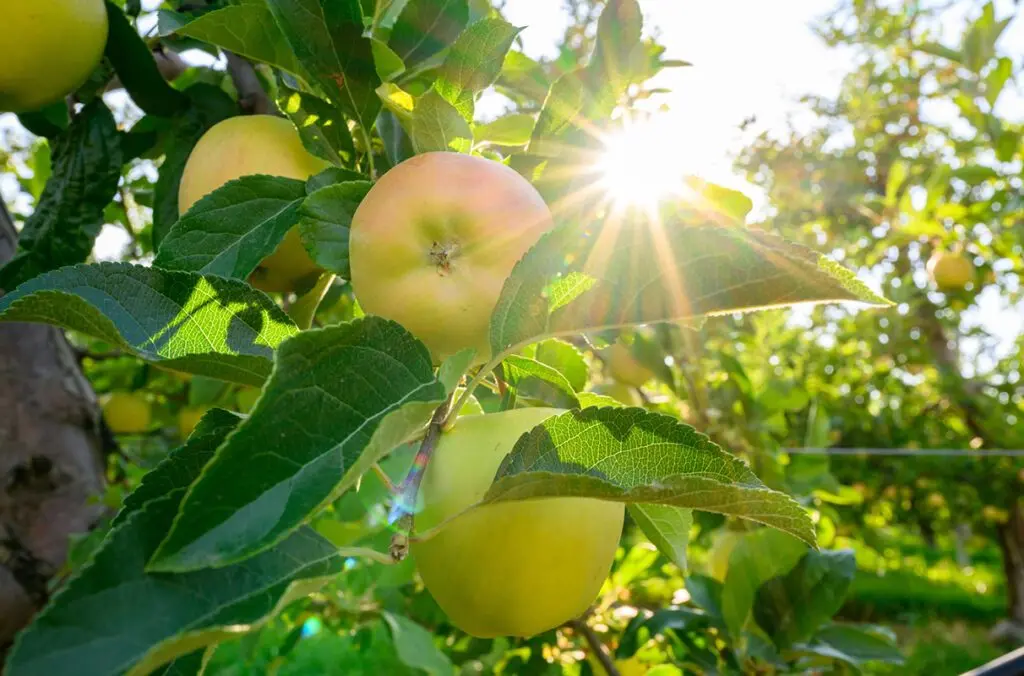PULLMAN, WA – A microscopic organism that thrives in the most inhospitable environments on the planet could be a serious weapon against costly and dangerous microbes, including one that decimates apple and pear orchards.
For nearly a decade, Washington State University researcher Cynthia Haseltine has been quietly studying an extremophilic archaeon — a microorganism from a unique branch of life including microbes known for surviving in boiling acid, deep-sea vents and salt crystals — and using it to derive a compound that is highly effective against a wide range of pathogens affecting plants, animals and humans.
In a lab setting, the compound appears to be particularly potent against fire blight, one of the most destructive diseases in apple and pear crops. Haseltine is hoping to expand her efforts to the field and begin working with commercial partners and producers.
“Fire blight can take out entire orchards, and it can destroy the livelihoods of farmers,” said Haseltine, an associate professor in the WSU College of Veterinary Medicine’s School of Molecular Biosciences. “This could potentially revolutionize crop protection — and it is also effective against many other pathogens.”
Since joining WSU in 2006, Haseltine has focused her research on archaea — the third branch of life, distinct from bacteria and eukaryotes, including humans, animals, and plants.
While understudied and often overlooked, archaea have been key for several notable advancements in science and biotechnology. Enzymes derived from these microorganisms are essential to PCR — a key tool for studying DNA — and are used in biofuel, waste treatment, and food processing industries.
This could potentially revolutionize crop protection — and it is also effective against many other pathogens.
Cynthia Haseltine, associate professor
Washington State University
On essentially a whim, Haseltine began testing a compound she derived from an archaeon her lab had been studying against common and antimicrobic-resistant pathogens. With the help of a revolving team of undergraduate researchers, she has shown it to be effective against a long list of pathogens, including Erwinia amylovora, the bacterium that causes fire blight.
“Almost nobody studies this branch of life,” Haseltine said. “They’re a whole different branch that’s untapped. We are just amazed every day at the effectiveness of this compound.”
Fire blight is of particular concern in Washington state, which produces nearly two-thirds of the nation’s apple crop. The disease can destroy entire orchards depending on the timing of infection and environmental factors. This destruction produces significant economic losses, totaling more than $100 million annually. The disease is expected to worsen in coming years as average temperatures increase.
Current treatment and prevention strategies rely on antibiotics like streptomycin, which is losing its effectiveness due to resistance. The drug is also only preventative and is not effective in trees already infected. Effectiveness is also heavily influenced by timing and its sensitivity to temperature.
Haseltine’s compound, however, is heat-stable, long-lasting and effective even against resistant strains. It also kills bacteria within biofilms — protective layers that pathogens use to evade immune systems and spread.
The compound has also shown effectiveness against Candida albicans — a fungus that commonly causes infections in people with cystic fibrosis — as well as MRSA and even pathogens affecting oysters and potatoes, to name a few.
“I’ve got an enormous list of things it will kill,” Haseltine said.
Haseltine said her lab is now capable of isolating and producing the compound in significant quantities. Working with WSU’s Office of Commercialization — which is dedicated to helping researchers transition their innovations from the lab to the marketplace — she has filed a provisional patent and anticipates additional filings. She is currently seeking commercial partners to help bring her compound to the market. For partnership opportunities, email commercialization@wsu.edu.
“We are finally at the point where we are ready to work directly with growers, producers and industry partners,” Haseltine said. “Our compound has the potential to transform how we protect crops — and possibly much more.”





